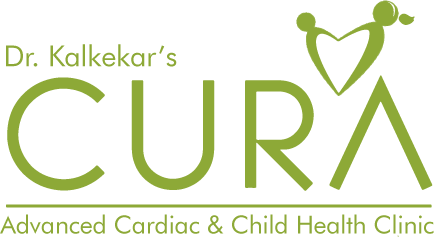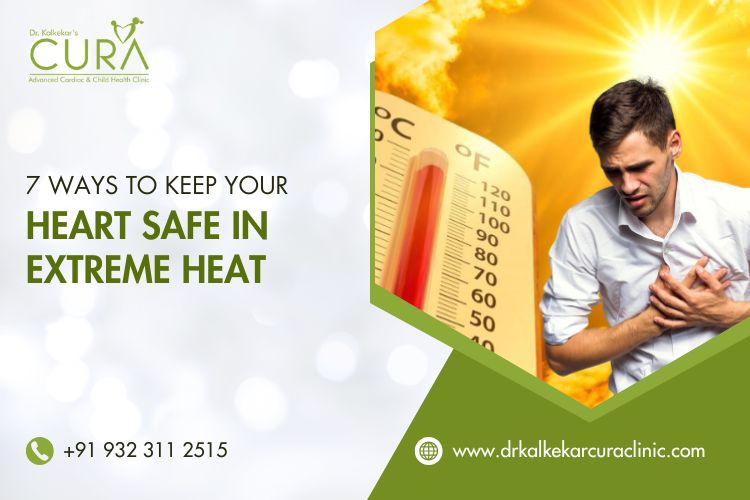7 Ways to Protect Your Heart During Extreme Heat
Whether you're enjoying a bike ride, jogging in the park, or just taking a walk around the block, it’s essential to keep your heart safe when the temperature rises.
The heat can affect everyone, especially those over 60, individuals with heart disease, and those who spend a lot of time outdoors. By taking the right precautions, you can enjoy the summer without putting your health at risk.
This blog by Dr. Kalkekar, a well-known cardiologist in Seawoods, highlights 7 simple ways to protect your heart during extreme heat.
1. Consult Your Healthcare Professional
Before starting any exercise routine, especially in the heat, it’s a good idea to check in with your healthcare provider, especially if you have a chronic condition.
Some medications, like beta blockers or diuretics, can make your body more sensitive to heat. It’s essential to follow your doctor’s advice but never skip your prescribed medications.
2. Stay Hydrated
Drinking plenty of water is your number one defense against heat. The summer months lead to fluid loss due to sweating, so it’s crucial to replenish regularly. Carry a water bottle with you at all times—when you are outdoors.
If plain water feels dull, switch it up with homemade detox drinks, lemonade, or hydrating fruits and vegetables like watermelon and cucumber.
3. Keep Cool, Stay Cool
If you're lucky enough to have air conditioning, that's great! But if not, there are other ways to stay cool. Take a cold shower before heading out or before bed. At home, you can place a bowl of ice cubes in front of a fan for an easy DIY cooling system.
4. Choose Cooling Foods
During summer, focus on eating hydrating foods. Smoothies, cold soups, fruits, and vegetables help replace lost fluids. Stock up on water-rich foods like strawberries, watermelons, celery, and cucumbers while avoiding greasy and heavy foods.
5. Shield Yourself from the Sun
While staying indoors is the best way to avoid the sun, we all need to head outside at some point. Before stepping out, always apply sunscreen and consider carrying an umbrella for shade. Sunglasses will protect your eyes, and a scarf can shield your face and body. A cool shower before you go out will also help you stay fresh and cool.
6. Know the Warning Signs of Heat Illness
Extreme heat can lead to heatstroke or heat exhaustion, both serious conditions that prevent your body from regulating its temperature.
Heatstroke: Symptoms include a high fever (over 104°F), confusion, a rapid heartbeat, and loss of consciousness. This is a medical emergency, so call or visit your doctor immediately.
Heat Exhaustion: Symptoms include heavy sweating, nausea, muscle cramps, dizziness, and fainting. If you experience these, move to a cool place, loosen your clothes, use cold compresses, and sip cool water. If symptoms continue, seek medical help immediately.
7. Time Your Outdoor Activities
To prevent unnecessary strain on your heart, try to avoid being outside during the hottest times of the day when the sun is at its peak. Heat stresses your cardiovascular system, and your heart has to work harder to keep you cool.
The hotter and more humid it gets, the more challenging it is for your heart, especially if you already have heart concerns.
8. Dress Right
Opt for loose-fitting, light-colored garments (to aid in reflecting heat) made from a breathable, lightweight material such as cotton. Complement your outfit with well-ventilated footwear, a wide-brim hat, sunglasses, and sunscreen.
Remember, staying cool, hydrated, and listening to your body is the key to protecting your heart in extreme heat. Enjoy the summer, but always prioritize your health!
If you are looking for a cardiologist in Seawoods, look no further than Dr. Kalkekar’s Cura Clinic.




